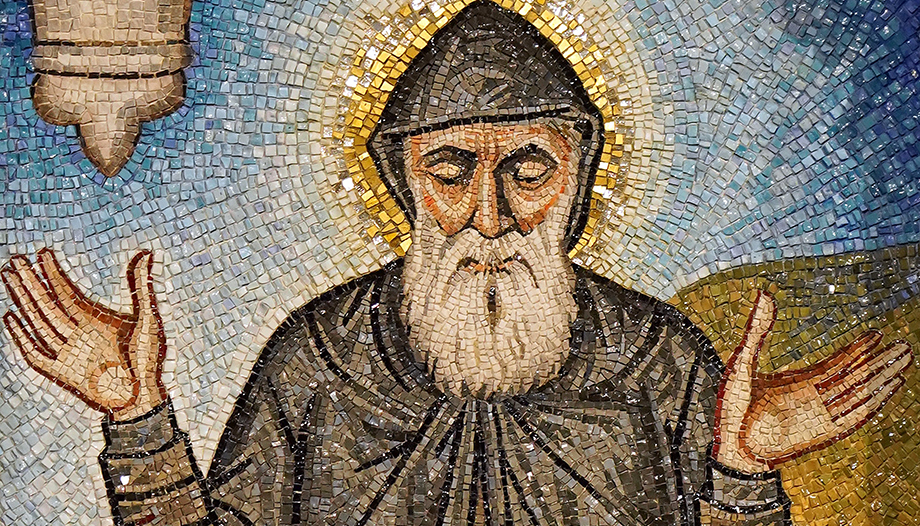Pope Paul VI canonized Chárbel Makhlouf on October 9, 1977. This Maronite monk profoundly marked the lives of all those who knew him in the Lebanonand even today there are thousands of people who claim to receive favors through the priest's intercession.
St. Karbel was born in 1828 in the village of Beqakafra, Lebanon. At the age of 23 he entered a Maronite monastery, took solemn vows in 1853 and was ordained to the priesthood at the age of 31.
Deeply in love with Christ, the Maronite monk was known for his lifestyle, dedicated to prayer and fasting. St. Karbel withdrew to live in solitude in a hermitage that was part of the monastery of Annaya. However, his isolation was interrupted by the visits he received. He achieved a reputation for holiness during his lifetime and, because of his gift for healing the sick, many people came to him in search of a cure for their ailments.
Saint Karbel and the search for God
However, these events are not the most extraordinary. St. Cherbel is the first saint of Lebanon, since his canonization in 1977. Pope Paul VI called the monk "a paradoxical peacemaker" and "a worthy representative of the Churches of the East and of their high monastic tradition. Beyond the miracles performed by St. Karbel, even during his lifetime, what stands out about him is his impact on the Catholic Church and even on those of other faiths, such as Muslims.
But the goal of this monk was not to attract attention for his lifestyle or his ability to appeal to people of different backgrounds. The reason for his actions, as Paul VI expressed, "was the pursuit of holiness, that is, the most perfect conformity to the humble and poor Christ." Karbel's decisions were guided by "the unceasing search for God alone, which is the hallmark of the monastic life, accentuated by the solitude of the eremitical life".
Depth of spiritual life
Anticipating the mentality that prevails today, Pope Paul VI wondered whether the example of St. Karbel might not lead some "to suspect, in the name of psychology, that this uncompromising austerity is an abusive and traumatic disregard of the healthy values of the body and of love, of friendly relations, of creative freedom, of life in a word".
To consider the lifestyle of the monk and his companions in this way is, in the words of the Pontiff, "to show a certain short-sightedness in the face of an otherwise profound reality". Christ himself was demanding of his disciples, the Pope pointed out, although the prudence that superiors and the Church as a whole must exercise and demand cannot be disregarded.
To see a contempt for life in the asceticism of monks, Paul VI explained, "means forgetting the love of God that inspires it, the Absolute that attracts it." It is, in short, "to ignore the resources of the spiritual life, which is capable of bringing a depth, a vitality, a mastery of being, a balance that is all the greater because it has not been sought for its own sake."
St. Karbel, a reminder for today's world
In spite of this, Paul VI emphasized that the vocation of St. Karbel is not the only one in the Church, but that it is nourished by the different charisms. However, the witness of lives like that of the Lebanese monk are necessary for "the vitality of the Church" and to incarnate "a spirit from which no one faithful to Christ is exempt".
St. Cherbel is for the Church and society a very important witness. As the Pope emphasized at his canonization, "today's social life is often marked by exuberance, agitation, the insatiable search for comfort and pleasure, combined with a growing weakness of the will: it will only recover its balance through an increase in self-control, asceticism, poverty, peace, simplicity, interiority and silence".
Paul VI concluded his homily by indicating that the life of Karbel teaches us that "to save the world, to conquer it spiritually, it is necessary, as Christ wishes, to be in the world, but not to belong to all that in the world leads away from God".







